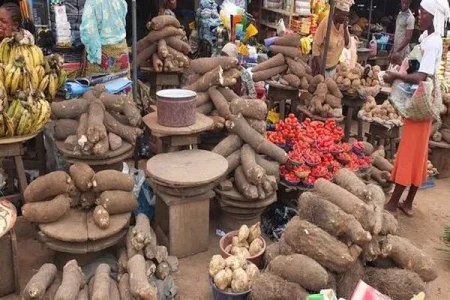
Farmers in Nigeria warn of worsening food inflation crisis due to subsidy removal and insecurity, predicting continued price hikes until August. The crisis, exacerbated by transportation costs and disrupted farming activities, has sparked widespread concern
Farmers across Nigeria are sounding the alarm on the worsening food inflation crisis, predicting even tougher times ahead for Nigerians.
They attribute the crisis to the removal of subsidies, which has led to increased transportation costs for farm produce, and ongoing insecurity, which continues to disrupt farming activities. These factors have driven up the prices of essential food items, making them less accessible to ordinary citizens.
In response to the crisis, farmers are urging Nigerians to brace themselves for further price hikes in food produce, with some warning that the situation may persist until August.
The impact of the food crisis is not new to the country, but the current situation has sparked widespread concern, prompting calls for action from various quarters.
The Nigeria Labour Congress has made the food crisis a central argument in its demand for an increased minimum wage, highlighting the economic strain faced by ordinary citizens.
The National Human Rights Commission has also raised concerns about the crisis, noting its adverse effects on access to healthy and nutritious food, particularly among vulnerable groups such as Internally Displaced Persons.
The Federal Government has expressed its concern over the rising prices of food and other commodities, particularly in states like Niger and Kano, where protests have erupted in response to the high cost of living.
Traditional rulers in the North and the Nigerian Bar Association have also decried the hardship caused by the crisis, attributing it to the removal of fuel subsidies, which has led to higher transport costs and food inflation.
Despite the challenges, stakeholders in the agricultural sector are calling for dialogue and collaboration between the government and farmers to address the root causes of the crisis.
They emphasize the need for investment in agriculture and the implementation of policies that support food security and affordability for all Nigerians.




